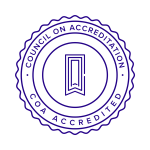NOURISH-OK Study
NOURISH-OK stands for Nutrition to Optimize, Understand, and Restore Insulin Sensitivity in HIV for Oklahoma. Surveys conducted by Tulsa CARES and others found that more than half of Oklahomans living with HIV have problems getting enough healthy food to eat for themselves and their families. The NOURISH-OK Study will help Tulsa CARES understand what causes food insecurity, how it may lead to health problems in HIV, and how we can help improve food security for our clients. To learn more click here.
Farmers’ Market
The Tulsa CARES Farmers’ Market provides clients access to on-site fresh fruits and vegetables, eggs, and bread twice per month. For clients who are not case managed by Tulsa CARES, physicians may directly refer patients with multiple health conditions or risk factors to the Farmers’ Market. These clients receive customized recommendations and one on one support from the dietetics team that is medically-tailored and designed to help support clients reach their health goals through optimal nutrition.
To sign up for this month's Farmers' Market, click here.
Monthly Groceries
Tulsa CARES’ market allows eligible clients to privately shop once per month and select from a variety of food items, including produce, meat, and dairy, as well as essential household goods. Many items are color-coded to guide clients along their individualized food plan, and we promote client choice by allowing clients to select food based on their own preferences.
Dietetic Services
Our Dietitian and nutrition staff provide nutrition education, dietary analysis, and individualized meal plans to clients needing support. When necessary, services also include medical foods and nutritional supplements. With a physician referral, medical nutrition therapy and body composition testing can be made available to any person living with HIV in our service area.
Emergency Grocery Assistance
For clients not participating in the monthly groceries program who only need food assistance occasionally due to unexpected financial hardship, emergency groceries can be accessed up to four times per year.
.png)
.png)

.png)


